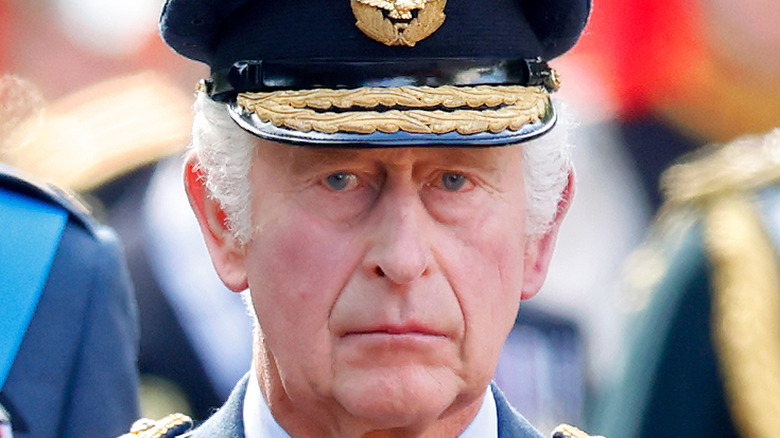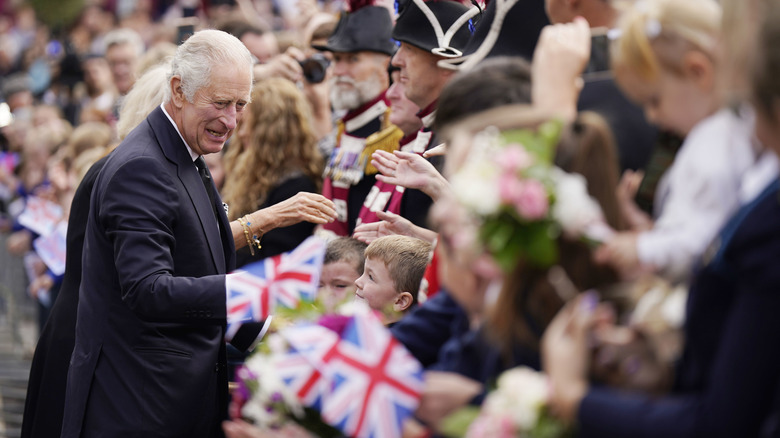What Will The Era Of King Charles III Be Called?
Periods in British history are typically named after the reigning monarch at that time. For instance, the Georgian Era, which lasted from 1714 to 1837 — sometimes referred to as the Hanoverian Era — was the time when four King Georges (George I to IV) ruled in succession (via Intriguing History). The Victorian Era, a time of political reform and when the Industrial Revolution took place, was called such as it took place under the reign of Queen Victoria from 1837 until 1901.
Furthermore, other aspects, such as famous figures, architecture, and even fashion are connected to the eras. Homes with gabled roofs, turrets, and intricate woodwork are the common characteristics of a Victorian-style home, which was popular during Queen Victoria's reign. William Shakespeare, one of the most famous writers, is known as an Elizabethan playwright, as he lived during Queen Elizabeth I's time, per Canada College. When Queen Elizabeth II died on September 8, 2022, the Second Elizabethan Era, or the New Elizabethan Age came to an end, and King Charles III became the new monarch.
King Charles III era
The Roman numeral on King Charles III's regnal name signifies that he is the third monarch to use the name Charles. Per the Royal Household, King Charles I ascended the throne in 1625, but he wasn't a great ruler. His reign was marred by controversies and civil wars that ended in his execution in 1649 due to treason. King Charles II, Charles I's eldest son, was the king of England, Ireland, and Scotland from 1660 until his death in 1685, also called the Restoration period.
Despite having the same name, Charles I and Charles II's reigns are referred to by different names. While Charles I's rule is known as the Caroline Era, Charles II's is called the Carolean Era. According to Etymology Online, both Caroline and Carolean come from the name Carolus, the Medieval Latin version of the name Charles. In a tribute to the late queen, British Prime Minister Liz Truss mentioned the beginning of the "new Carolean age," and it is most likely what historians will call the period of King Charles III's reign (via CBS News). However, it may also be named the Windsor Age, collectively referring to the monarchs from the House of Windsor, namely George V, Edward VIII, George VI, Elizabeth II, and Charles III, as noted by The Scotsman.

